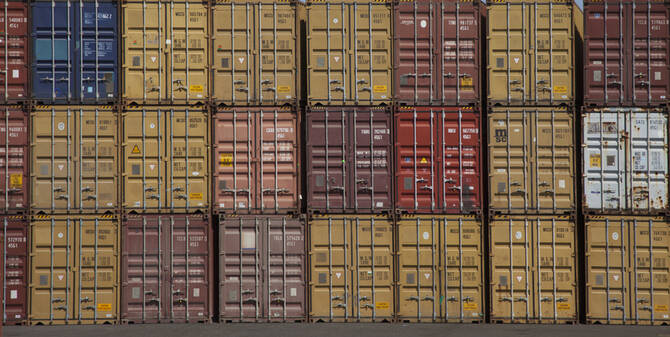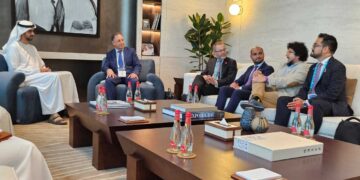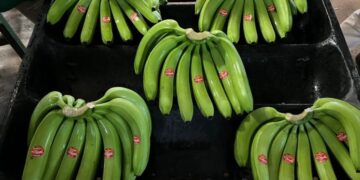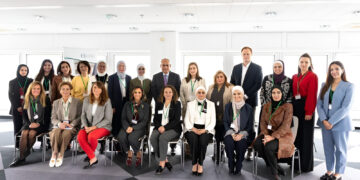Abu Dhabi’s Non-Oil Foreign Trade Soars by 34.7% in First Half of 2025
Abu Dhabi has recorded a significant leap in its non-oil foreign trade, with figures climbing by 34.7% in the first half of 2025, reaching a total of 195.4 billion dirhams (approximately $53.2 billion). The sharp increase from 145 billion dirhams during the same period in 2024 highlights the strength and resilience of the emirate’s diversifying economy.
According to the Abu Dhabi Media Office, the robust performance was driven by efficient infrastructure, advanced logistics services, and strategic investments across pivotal sectors—factors that have significantly streamlined trade flows and facilitated the seamless movement of goods across border crossings.
This surge comes as the UAE pushes toward an ambitious target of 4 trillion dirhams in non-oil foreign trade by 2031. However, officials now believe the country is on track to achieve this milestone within the next two years, which is four years ahead of schedule.
Delving into the specifics, non-oil exports jumped 64% to hit 78.5 billion dirhams, up from 47.9 billion dirhams in H1 of 2024. Meanwhile, imports rose by 15%, totaling 80 billion dirhams, compared to 70 billion dirhams the year prior. Furthermore, re-exports saw an increase of 35%, reaching 36 billion dirhams, a notable improvement from 26.6 billion dirhams a year ago.
Ahmed Jasim Al-Zaabi, Chairman of the Abu Dhabi Department of Economic Development, stated:
“Our consistent growth, amid the challenges in international trade and the global economy, reflects the strength of our long-term economic planning, decisive policy execution, and our commitment to enabling the free and fair exchange of goods, services, and innovations.”
He added:
“We are doubling down our efforts to position Abu Dhabi among the world’s most business-ready economies by streamlining trade procedures, deploying smart systems, and integrating services to enhance flow and accelerate efficiency, cementing Abu Dhabi’s position as a global trade and investment center, and a key node on international supply chains.”
Emphasizing the role of the custom services, Rashed Lahej Al-Mansoori, Director General of Abu Dhabi Customs, noted:
“Abu Dhabi Customs remains dedicated to delivering best-in-class services and procedures that accelerate customs clearance and promote integration with both local and international partners, thereby supporting sustainable growth, enabling the future economy, and reinforcing Abu Dhabi’s position on the global trade map.”
The latest figures underscore Abu Dhabi’s economic transformation as it continues to reduce reliance on hydrocarbons and establish itself as a global trade hub. As infrastructural advancements and policy reforms continue, the emirate’s non-oil sector is poised for sustained and diversified growth in the years ahead.
Team V.DIR-EM-UAE














